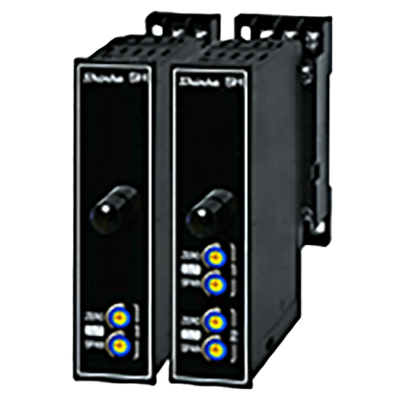What Is a Signal Converter?

A signal converter is a device that transforms electrical signals from various sensors into industrial current signals.
Sensors gather information, such as temperature, load, or the number of revolutions of a machine’s rotating shaft, and convey it as measurement data. This data is then transmitted to control equipment, which uses it to output commands and control the system.
Signal converters adapt the electrical signals from sensors into a format compatible with control equipment. They also isolate abnormal electrical signals from sensors to prevent damage to downstream control devices.
There are many types of signal converters, each playing a crucial role in transmitting sensor information to control systems and devices.
Uses of Signal Converters
Signal converters are essential in electronics that utilize various sensors. Their applications range from industrial manufacturing machinery to laboratory instruments and measurement devices.
They are also employed in factory processing furnaces for heating or cooling, in equipment for controlling turbine, spindle, and shaft speeds, in load measurement for machine tools, and test equipment.
Principle of Signal Converters
The operation principle of signal converters varies by type:
1. Isolator
Isolators disconnect signals from the electrical circuit between the sensor and control circuit, preventing signal routing issues, protecting equipment, reducing noise effects, and facilitating signal exchange between different manufacturers’ equipment.
2. Pulse Transducers
Pulse transducers convert signals from proximity sensors into analog signals for rotational speed control. They transform pulse signals detected by proximity sensors into analog signals for output.
3. Couple Transducers
Couple transducers, used for temperature measurement, convert the electromotive force (emf) signals from thermocouples into analog signals for output.
4. Load Cell Transducers
Load cell converters transform the resistance changes in strain gauges, caused by force-induced deformation, into analog electrical signals for measuring force magnitude.
Other Information on Signal Converters
Signal Converter Cautions
It’s crucial to consider noise countermeasures for signal converters. They should be installed away from high-frequency and surge-generating devices and, where necessary, supplemented with surge absorbers and noise filters to mitigate interference from motors, transformers, solenoids, and magnet coils.